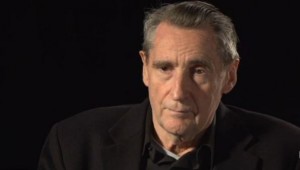Gold Sounds: MIT's Music Talents Contribute to a New Oral History
-
-
slice.mit.edu
- 1
Filed Under
Recommended
Such notes of wisdom emerge when one enters the new virtual space, launched this week, of the MIT Music Oral History Project. Cataloging over a decade of interviews, this audio and video archive of nearly 50 notable interviews has been made available to the public for the first time.

Corley, who founded the MIT Concert Band in 1949, chats for nearly six hours on tape with Larson, relating colorful tales of students, field trips, concerts, and fans in the half-century of his tenure.
But Corley’s interview is only one such gem in the collection, an effort made possible by a gift from Lionel ’53 and Vilma Kinney which is housed in MIT’s Lewis Music Library.
The archive includes interviews with professors, visiting artists, department heads, conductors, and Techtonians–students who played all manner of instruments, from violin to trumpet to electronica.
"Music has been an important part of MIT since its creation," says Peter Munstedt, Lewis Music Librarian. "Going back to the 19th century, it's always been an integral part of life here."
Larson, who is the circulation and reserves associate at Lewis, discovered that his interview subjects were not just telling the story of music at MIT, but the history of music in the world. In frank and lengthy conversations with his subjects, Larson was pleased to hear his subjects cover "more than just their love of music. What it shows you is the culture of MIT and the students who come out of that...the fact that they’re often not one-track minded people, but have a broad interest in things."
Each interviewee is as intriguing as the next. Herb Pomeroy, the first director of MIT Jazz Bands and founder of the MIT Festival Jazz Ensemble, recalls his recruitment to the Institute in a candid moment.
“So the phone rang…I answered it. He said, ‘I'm Klaus Liepmann, Director of Music at MIT. We have a band here at MIT that is so bad,’ he said, ‘that I've told them to disband. Or if they-- if they want to continue, do not use the name MIT to be associated with.’”
Thankfully, they did not disband. Pomeroy, then a Berklee professor, took up the cause, and brought great distinction to jazz scene on the north side of the Charles.
Scholars have already used the project as a starting or continuing point for other kinds of research, most frequently about the collection's influential figures. But Larson says he looks forward to helping others discover uses for it in the years to come.








Comments
Monica
Mon, 08/12/2013 9:38am
I love and completely agree: with Corley "I’ll characterize MIT and music: there’s no substitute for brains, you know. We’re able to do things at MIT that I couldn’t do at a conservatory.”